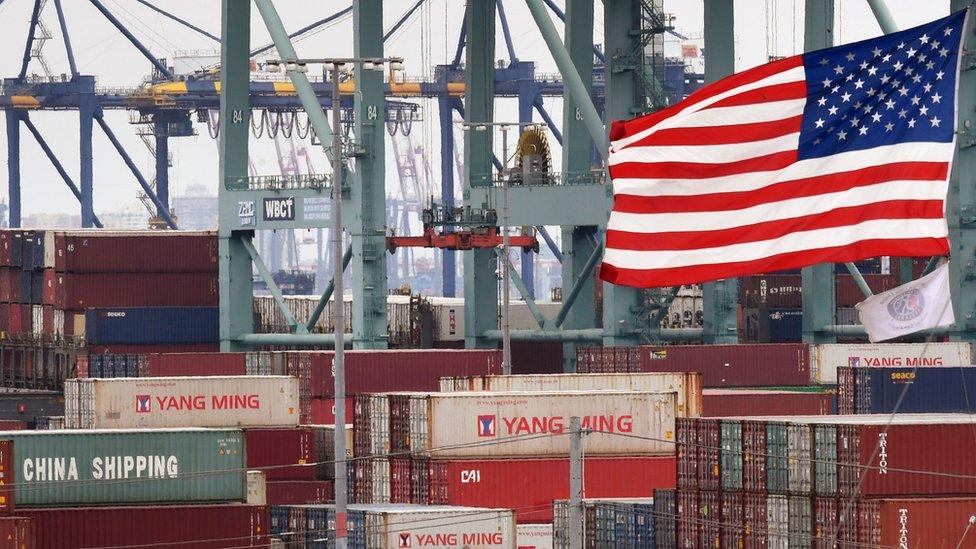Global shares jump on US-China trade 'truce'
- Published
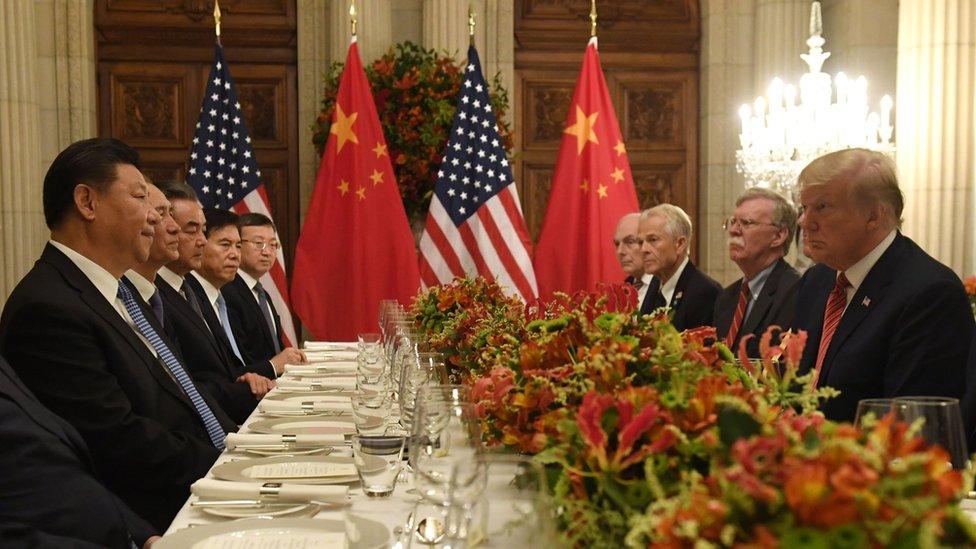
Global stock markets have jumped following the truce in the US-China trade war.
US indexes rose about 1% on Monday, following gains in Europe and Asia.
The increases come after the US and China said they had agreed to not increase tariffs for 90 days to allow for talks.
It remains uncertain how the two sides will resolve underlying US concerns over trade barriers, subsidies and alleged technology theft.
Despite the questions, US President Donald Trump was in an ebullient mood, promising benefits to US farmers and car companies.
On Twitter, he said farmers would be a "very BIG and FAST beneficiary" and described the meeting with Chinese President Xi Jinping as "extraordinary".
Allow X content?
This article contains content provided by X. We ask for your permission before anything is loaded, as they may be using cookies and other technologies. You may want to read X’s cookie policy, external and privacy policy, external before accepting. To view this content choose ‘accept and continue’.
Both farmers and the auto industry have been struck in the trade war, as the US and China hit each other with escalating tariffs.
Since July, the US has imposed tariffs on $250bn (£195.9bn) worth of Chinese goods. China has retaliated with duties on some $110bn of US goods over the same period.
What was agreed at the G20?
The US agreed to postpone further tariffs on Chinese goods - a halt that applies to its plans to raise tariffs from 10% to 25% on almost 6,000 items.
In exchange, the two countries agreed to re-start talks on the US concerns that triggered the dispute, including "forced technology transfer, intellectual property protection, non-tariff barriers, cyber intrusions and cyber theft", according to the White House.
In addition, the US said China agreed to "purchase a not yet agreed upon, but very substantial, amount of agricultural, energy, industrial, and other products from the United States".
Mr Trump later wrote on Twitter that China would "reduce and remove" tariffs on US-made cars, which had been raised to 40% over the summer as tensions escalated.
Beijing did not immediately confirm the statement and White House economic advisor Larry Kudlow said the two sides had not come to a firm agreement.
However, he said he expected China to reduce the tariffs to zero, taking action "immediately" as a way to demonstrate its commitment to a final deal.
In another sign that many details remained unresolved, Mr Kudlow said the 90-day pause would begin 1 January - only to have the White House later say the start date was 1 December.
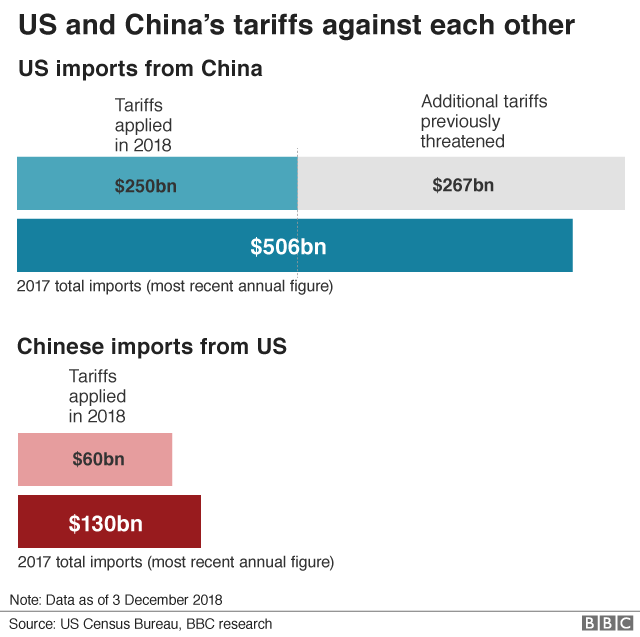


What's missing in China's official statement?
Zhaoyin Feng, US Correspondent, BBC Chinese Service
Beijing has offered limited details regarding the truce deal made during the Trump-Xi meeting in Buenos Aires, a move to downplay China's compromises in the negotiation and to save face in front of its own people.
China's official statement underlines that no higher tariffs will be imposed on January 1, 2019, but it does not mention the 90-day deadline.
The US statement also lays out major issues for discussion in the coming 90 days and types of American products that China promises to purchase, while the details are not disclosed by the Chinese government and barely reported by the heavily regulated Chinese domestic media outlets.
The not-so-subtle disparities between the US and Chinese official statements highlight how much a gap needs to closed in the three-month trade war time-out.
Also, Beijing has neither echoed nor rebutted Trump's claim about China agreeing to "reduce and remove" tariffs on American vehicles. China's silence indicates that the two leaders likely discussed the issue and reached a tentative agreement during their dinner meeting.
On the non-trade issues, Beijing was more open, announcing that China will tighten supervision of Fentanyl and review rules on the drug. Pledging to crack down Fentanyl is considered a low-hanging fruit in the Trump-Xi meeting, as China has previously pledged to work with the US to stop opioid imports.

What pushed the two sides to the table?
China had previously offered to increase its purchases of US products, only to have Mr Trump reject the deal.
However, he has faced fierce criticism from US business groups, as the tariffs lead to reduced exports of crops such as soybeans, while raising costs for businesses that rely on Chinese imports.
Worries about the economic impact of the tariffs have pushed stock markets lower in recent months.
In China, tariffs have also weighed on the economy.
On Monday, China's foreign ministry said economic teams in both countries had been instructed to "intensify talks" towards removing all tariffs following the G20 meeting.
It did not indicate if that was a plan with specific goals or something that was merely desirable.
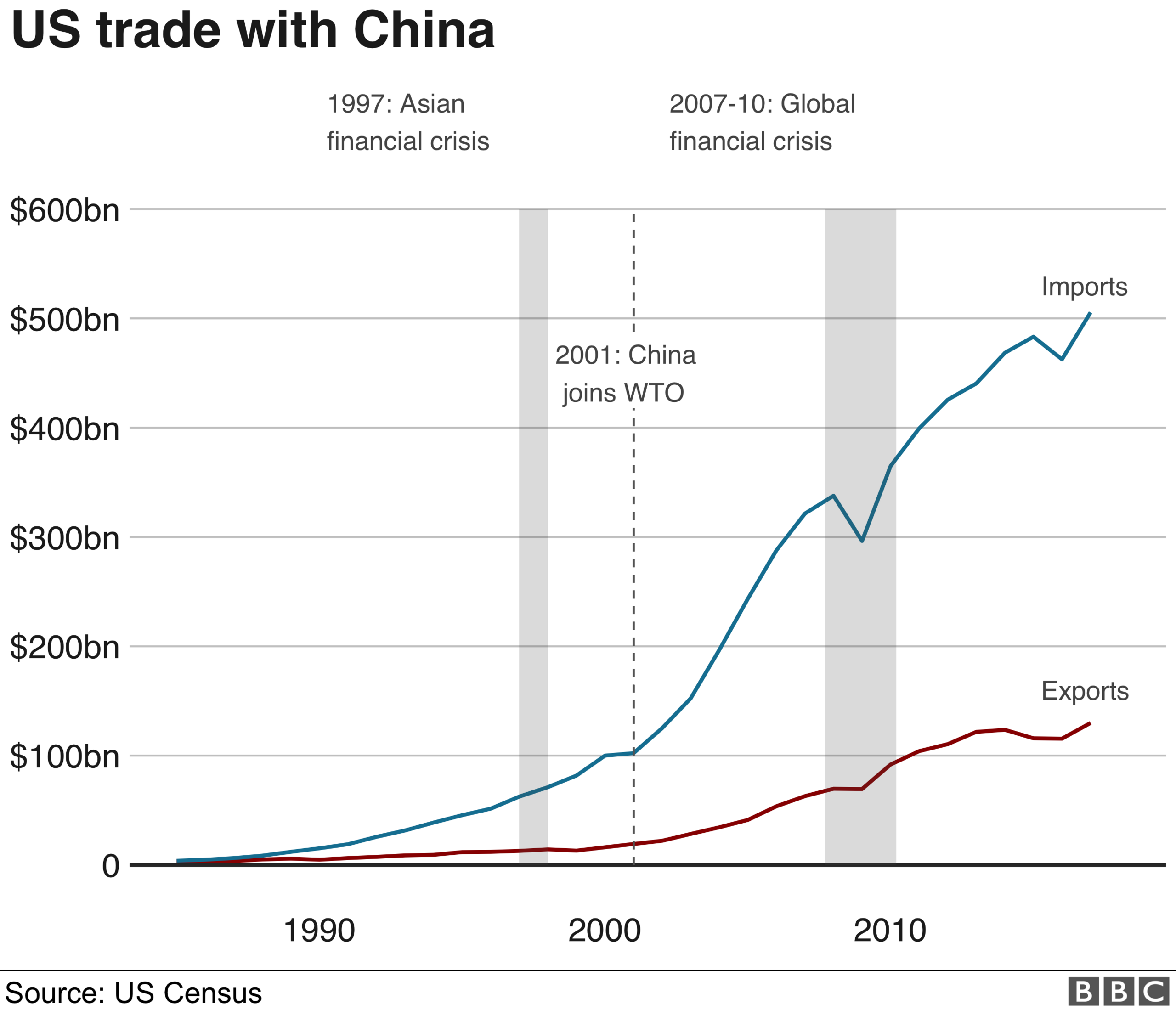

Will this resolve the dispute?
The White House was eager to declare victory on Monday, with Mr Kudlow hailing this weekend's meeting as an "enormous, enormous event".
"We have never had such broad-based, deep-down commitments," he said, though he later added there is more work to do.
US markets initially gained more than 1% on Monday, but the enthusiasm dimmed a bit later, as it remained unclear how the two countries will resolve their underlying differences.
"There should be no wishful thinking that the truce would end the trade war between the world's two largest economies," DBS strategist Philip Wee wrote in a research note.
He said it "remains to be seen if real progress could be achieved during this narrow window to resolve the contentious issues, not just on trade, but also intellectual property".
However, Andrew Hunter, US economist for Capital Economics, said he is optimistic that the apparent "ceasefire" will hold, even though the two sides have been in similar positions before.
He said Mr Trump has been willing to strike trade deals with only modest concessions in the past, pointing to new agreements with South Korea, Canada and Mexico.
"With Trump himself having personally negotiated the latest deal, this one has a much greater chance of leading to a lasting truce," he wrote in a research note.
- Published2 December 2018
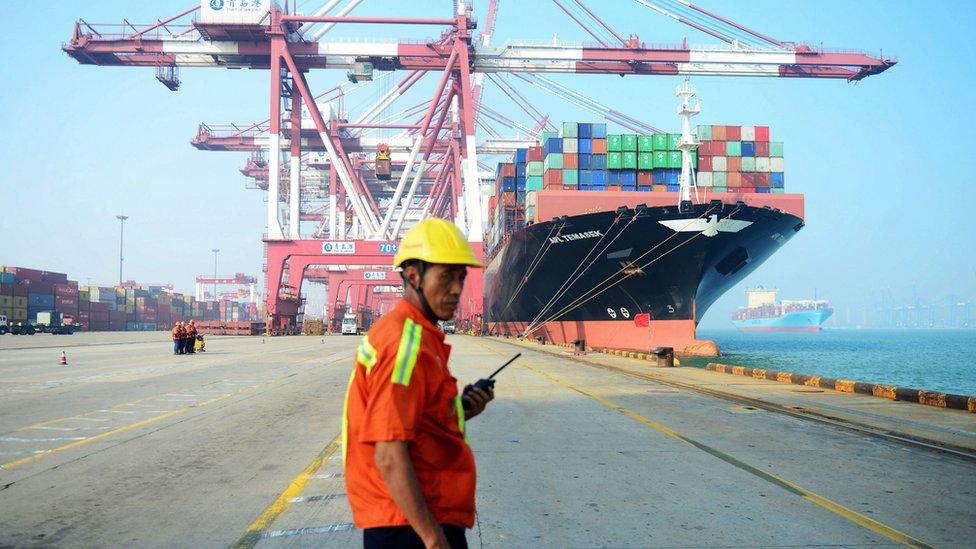
- Published2 December 2018
- Published18 September 2018
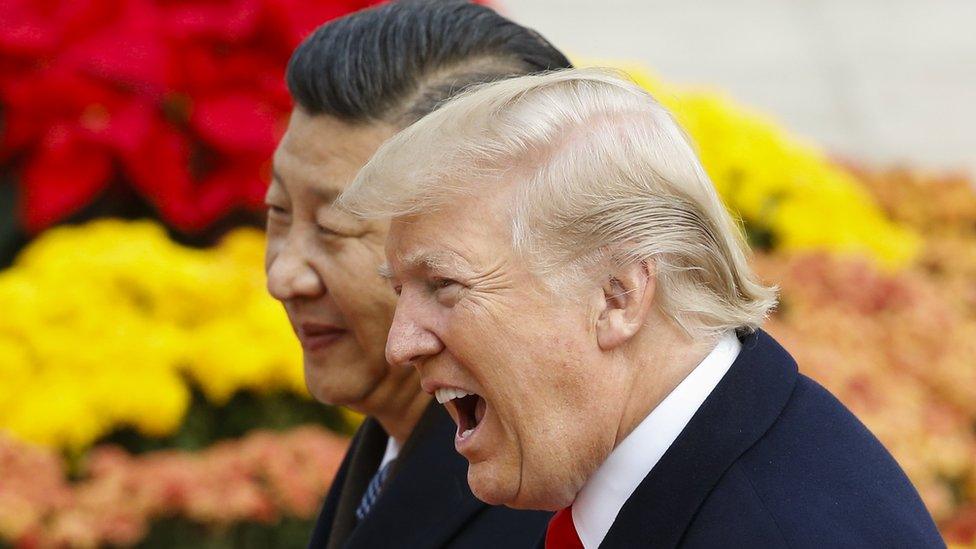
- Published16 January 2020
